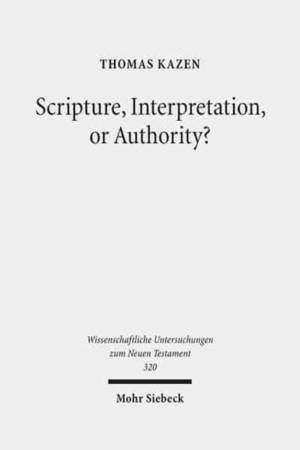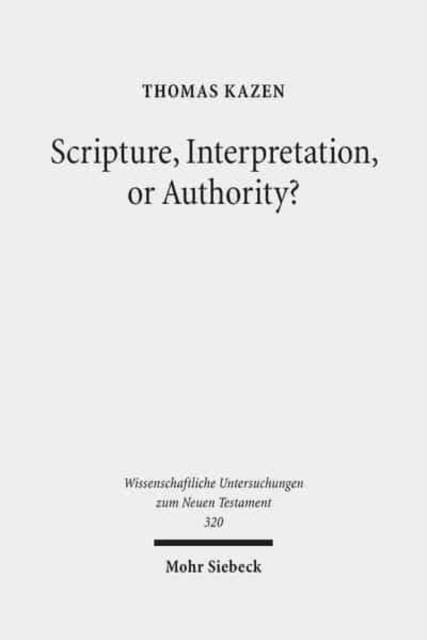
- Afhalen na 1 uur in een winkel met voorraad
- Gratis thuislevering in België vanaf € 30
- Ruim aanbod met 7 miljoen producten
- Afhalen na 1 uur in een winkel met voorraad
- Gratis thuislevering in België vanaf € 30
- Ruim aanbod met 7 miljoen producten
Zoeken
Scripture, Interpretation, or Authority?
Motives and Arguments in Jesus' Halakic Conflicts
Thomas Kazen
€ 301,45
+ 602 punten
Omschrijving
In this study of motives and arguments in Jesus' halakic conflicts, Thomas Kazen suggests a way beyond the use of traditional criteria of authenticity. Employing results from recent research on the development of halakah during the Second Temple period, which outlines trajectories and areas of tension within and between various Jewish movements, the author revisits the Synoptic conflict narratives about Sabbath observance, purity rules and divorce practices. Kazen disentangles theological motives from reasonable historical explanations and suggests relative dates and contexts for motives and arguments often ascribed to Jesus. He questions interpretations which focus on unique authority and suggests that Jesus' stance is better explained within the framework of prophetic criticism and a traditional Israelite understanding of Torah. With this study, he contributes as much to our understanding of halakic development during the Second Temple period as he does to our understanding of the historical Jesus and his relationship to contemporary movements.
Specificaties
Betrokkenen
- Auteur(s):
- Uitgeverij:
Inhoud
- Aantal bladzijden:
- 364
- Taal:
- Engels
- Reeks:
- Reeksnummer:
- nr. 320
Eigenschappen
- Productcode (EAN):
- 9783161528934
- Verschijningsdatum:
- 1/11/2013
- Uitvoering:
- Hardcover
- Formaat:
- Genaaid
- Afmetingen:
- 168 mm x 231 mm
- Gewicht:
- 738 g

Alleen bij Standaard Boekhandel
+ 602 punten op je klantenkaart van Standaard Boekhandel
Beoordelingen
We publiceren alleen reviews die voldoen aan de voorwaarden voor reviews. Bekijk onze voorwaarden voor reviews.












